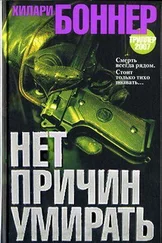Vogel recalled that Sir John had been treated privately by Bristol neurologist James Timson, a Parkinson’s specialist, who had also been interviewed early in the proceedings. Vogel called up the interview. It seemed that Sir John’s condition had at first improved slightly under the care of Mr Timson, and his estimated life expectancy had increased accordingly.
The neurologist was unsure exactly how long his patient had suffered from the disease. Then came the information Vogel was looking for. It seemed that Mr Timson had only treated Sir John Fairbrother for about eleven months, and had not seen any earlier medical records.
‘They were always on the way, but never seemed to turn up,’ he said.
Vogel sat for a moment deep in thought. He had so far found nobody who was in any sort of close contact with Sir John at the time of his death who had known him for more than a year. Anyone who did had been sacked, or simply avoided, or in the case of his immediate family, allegedly become estranged.
Vogel was still trying to make sense of what all this might mean, when Polly Jenkins came running across the incident room.
‘I’ve got it, boss,’ she said triumphantly. ‘Jack Kivel hired a car from Hertz at Victoria about two and a half hours ago. It’s a metallic grey Toyota Prius. They’re sending over all the details.’
‘Well done, Polly,’ said Vogel. ‘Put out an alert for that car. Get onto traffic right away. Tell them to forget about speeding violations. I want every traffic officer on the major highways out of London on the lookout for this vehicle. Particularly focusing on the motorways and arterials heading west and south. Kivel didn’t hire a car to stay in the city, and I’m gambling that as he picked it up in Victoria, he wouldn’t be heading north or east out of London. Right, Polly, move.’
Polly moved.
Vogel could feel the adrenalin rushing through him. The news of Kivel had somehow triggered him into action. He’d made his decision.
‘Saslow, with me,’ he called.
Saslow followed briskly. As Vogel strode through the incident room with the young DC hard on his heels, he called out to Micky Palmer.
‘Micky, get Hemmings on the phone. Tell him Saslow and I are on the way over to his house, and there’s been a possible development in the Fairbrother case which I must tell him about face to face.’
Palmer looked slightly askance. Vogel knew what the DC was thinking. It was getting on for midnight. Hemmings was going to be absolutely thrilled to receive the news that Vogel and Saslow were about to arrive at his home.
Vogel filled Saslow in on his latest theory as she drove.
The young DC didn’t seem to quite know what to say. Vogel knew how she felt. His phone rang just as they pulled up outside Hemmings’ large mock Tudor semi, which neither of them had ever visited before, in Clifton on the south side of the city.
‘Traffic just picked up Jack Kivel’s hire car on the M5,’ said Polly Jenkins. ‘Just past the Bristol intersection.’
‘Well, well, so is he coming home, I wonder? That would be pretty damned cool behaviour.’
‘I dunno boss, but it seems he has a passenger. More than likely Freddie Fairbrother, from what Nobby Clarke’s lot have said. Their full report’s come through. It seems Freddie had help giving ’em the slip. From a drunk, a burly broad-shouldered man, probably in his late fifties. Or more than likely our Jack pretending to be drunk, they think now. Traffic are covering every junction as the vehicle passes, tracking but making no approach, like you said, boss.’
‘Good,’ said Vogel. ‘Just keep me posted.’
Hemmings opened his front door before either Vogel or Saslow had the chance to ring the bell. He was wearing pyjamas and a velvet dressing gown that was more like an old-fashioned smoking jacket. Vogel didn’t dare look at Saslow.
‘This had better be good, Vogel,’ the superintendent growled.
‘Well, that’s one word for it, I suppose,’ said Vogel.
‘I do wish you wouldn’t talk in riddles, Vogel,’ said Hemmings. ‘Right, as you’re here you’d better come in.’
He led the way into a plushly carpeted sitting room. Even under such taxing circumstances Vogel could not fail to notice an abundance of velvet. Almost certainly down to Mrs Hemmings, he suspected.
Hemmings gestured for his visitors to sit, side by side on an expansive, gold, velvet-covered sofa. He did not look happy. Somewhat pointedly he did not offer them any hospitality.
Vogel began to speak, reporting on the day’s events and doggedly explaining his theory, which, he felt, began to sound more far-fetched the more he tried to rationalise it.
Hemmings listened in silence until he came to a natural end. Vogel waited patiently for his superior officer’s response, which seemed an inordinately long time in coming.
‘You are something else, Vogel,’ Hemmings said eventually, his tone no longer indicating whether or not he remained irritated by the presence of the two detectives. ‘You really are. And you have just presented to me what is probably the most outlandish scenario I have encountered in my entire career.’
‘Sorry sir,’ said Vogel lamely, largely because he could think of nothing else to say.
‘Yes, well, the thing is, I think you might well be right,’ the superintendent continued, to Vogel’s relief. ‘So, the only question is, what exactly are we going to do about it?’
He paused. ‘Kivel, and Freddie Fairbrother, we think, are somewhere on the M5 in a hire car. I don’t suppose we have any idea where they are going?’
‘No sir, I’m afraid not,’ replied Vogel. ‘I thought Kivel might be playing it cool and heading for home when I first heard where his car had been spotted. After all, we haven’t got any hard evidence against him. Not yet anyway. But I don’t think he’d take Freddie back to his cottage, unless his wife is in on it all too, of course—’
Vogel was interrupted by the ring of his phone.
He muttered his excuses and glanced at the screen. The caller was Polly Jenkins again. He answered at once.
‘Boss, traffic say Kivel has just turned off the M5 at Junction eighteen,’ Polly reported. ‘He’s heading south on the A4.’
Vogel was a new boy in the west of England, and his knowledge of road configurations anywhere was not as good as it should be, because he didn’t drive. But even he knew what lay in that direction.
‘My God,’ he muttered, with sudden certainty. ‘The airport. They’re heading for Bristol Airport. Hold on a minute, Polly.’
He turned to Hemmings. His senior officer was on his feet, his own phone in his hand, every iota of his body language positive and decisive. Vogel was not surprised. Hemmings wasn’t the boss of MIT for nothing. Clearly the superintendent was already right up to speed.
‘Tell Polly to make sure traffic continue to monitor the situation,’ he instructed. ‘You and Saslow, get to the airport. I’ll liaise with the airport police and arrange backup. Armed backup. Please be careful, Vogel. If you catch up with our man first, don’t do anything until you have backup. Is that clear?’
‘Of course, sir,’ said Vogel.
He was already halfway out of the house, Saslow hard on his heels.
Bristol Airport was quiet. More or less closed. Although the airport was licensed for night take-offs, in reality these were few and far between, particularly out of the holiday season.
Vogel was aware of this. He also knew that Bristol Airport was something of a centre for those who did not have to rely on the services of commercial airlines. Multi billionaire Sir James Dyson, one of the south west’s most successful businessmen ever, kept his own personal jet, a forty million pound Gulfstream, parked at the airport in its own two million pound hangar. Sir John Fairbrother, perhaps sensitive to the scrutiny of his company’s shareholders, had preferred, when necessary, to charter private aircraft capable of intercontinental travel. Or travel on somebody else’s.
Читать дальше












